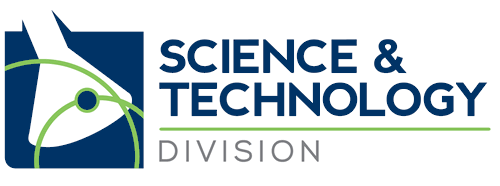By Susanna Weerth
Catherine Christaki, Tess Whitty, and Steven Marzuola (left to right) outlined the paths they each took to get into translation, and then sparked a discussion about important issues in technical translation during a Q&A session.
Steven Marzuola provided insights about how he got involved in translating for the oil and gas industry. At age 9, when he and his family lived in Venezuela, his father began taking him to visit oil rigs. Steven later worked in oil industry for about 10 years, before moving back to the US in the 1991. He began working for agencies that needed Spanish – English translations in the oil and gas industry which he was able to provide due to his background in the field which provided familiarity with the techniques, equipment and terminology. Steven enjoys reading, writing about his projects, translating, and presenting about his experiences.
Tess Whitty has a background in IT, telecommunications, and marketing, and a love for languages. After receiving her degrees in international marketing and business communications, she started working as a product marketing manager for a telecommunications company in Sweden. It was not until moving to the US that she started working as a translator and established her translation business translating from English to Swedish, specializing in software localization, IT, telecommunications and business communications. She is the language chair for the new English into Swedish certification for ATA, and helped develop this certification program.
Catherine Christaki translates from English into Greek in IT, telecommunications, medical and technical areas. In cooperation with her husband, a translator with expertise in the gambling field, she also translates and edits in this field. When she started as a translator, she had no knowledge in a specific field, and she worked full-time before choosing her fields.
Varied topics were covered during the Q&A time. Here are some of the insights, grouped by subject matter.
Some types of texts in medical translation require knowledge of only basic terminology, such as patient questionnaires, and can be attempted by any good technical translator. By contrast, others, like dentistry, require extensive field-specific knowledge, so attempted translation should not be treated lightly.
Tess stated that software localization is mainly done by localization companies, using translation agencies or freelance translators for the translation part. Direct clients are rare for this subject. Catherine said that Greek is almost never a part of the first round of localization when software is developed, and strings have already been translated into other languages, like French or German. Therefore, most of the problems that might occur, like formatting issues due to expansion of the translated text, have been addressed before the source text reaches the Greek translator. Also, since a lot of translators and/or translation agencies usually take part in the localization of a software project in a specific language combination, the individual IT translator almost never gets the chance to see his/her work published. Tess stated that she never gets the finished product, but can be involved in changes during software fixes and updates. Based on her experience, it would be ideal to make the translator part of the software development team instead of sending the translation to an agency or specialized translator after development. Developing the terminology simultaneously would make it easier to discuss terms e.g. those that need to fit into the same space when translated. An onsite translator could learn the terminology, explain difficulties of term translations, and ask questions.
The main language of communication in the oil industry is English. In many countries employees work in English, but not everywhere. The example in question was Spanish in Venezuela. The nature of translation for oil and gas depends on the software, the languages, and the project. For example, if only one company or language is involved, it makes terminology easier, even though each has their own specific terms.
After some discussion, all the attendees introduced themselves. The variety of subject-matter expertise present was inspiring! It included IT, engineering, mechanical engineering, renewable and building energy, gaming, materials science, chemistry, biochemistry, microbiology, nanotechnology, medicine, pharmaceuticals, and patent translation in these areas. Some also work in less technical subjects like marketing and law, and some attendees provide interpreting services as well as translation and localization services. Target languages represented were Chinese, English, French, German, Greek, Japanese, Korean, Portuguese, Polish and Spanish. A project manager from a translation company who values subject-matter expertise also attended this session. As we closed the meeting, she was surrounded by those present who were interested working for her company. This session was a haven for technical writing geeks enjoying the company of like-minded people.
Susanna Weerth works as an English – German freelance translator and interpreter. She specializes in life sciences (medical, biological and pharmaceutical), patent, and general legal translation and medical interpretation. She holds a professional certification as medical assistant and worked several years as medical technician in a physician’s office and a clinical laboratory at the Veterinary University Clinics of Munich. She received a “Diplom” (MS equivalent) in Biology and a “Doktor” (PhD equivalent) in Biology/Neuroimmunology from the University of Munich and the Max-Planck-Institute of Neurobiology, Germany. She worked in a clinical laboratory in Oncology in Germany. And after relocating to the US, she worked for several years in neuroscience research in laboratories at different universities and the National Institute of Health. She transitioned into translation by completing the “Certificate in German to English Translation” at the New York University in 2010 and started interpreting the same year with courses at Georgetown and Cross Cultural Communication. She has also taken biomedical writing and editing courses. She is currently involved at the board of the National Capitol Area Translators Association (NCATA) and the Nominating Committee of the Science & Technology Division and NCATA.

